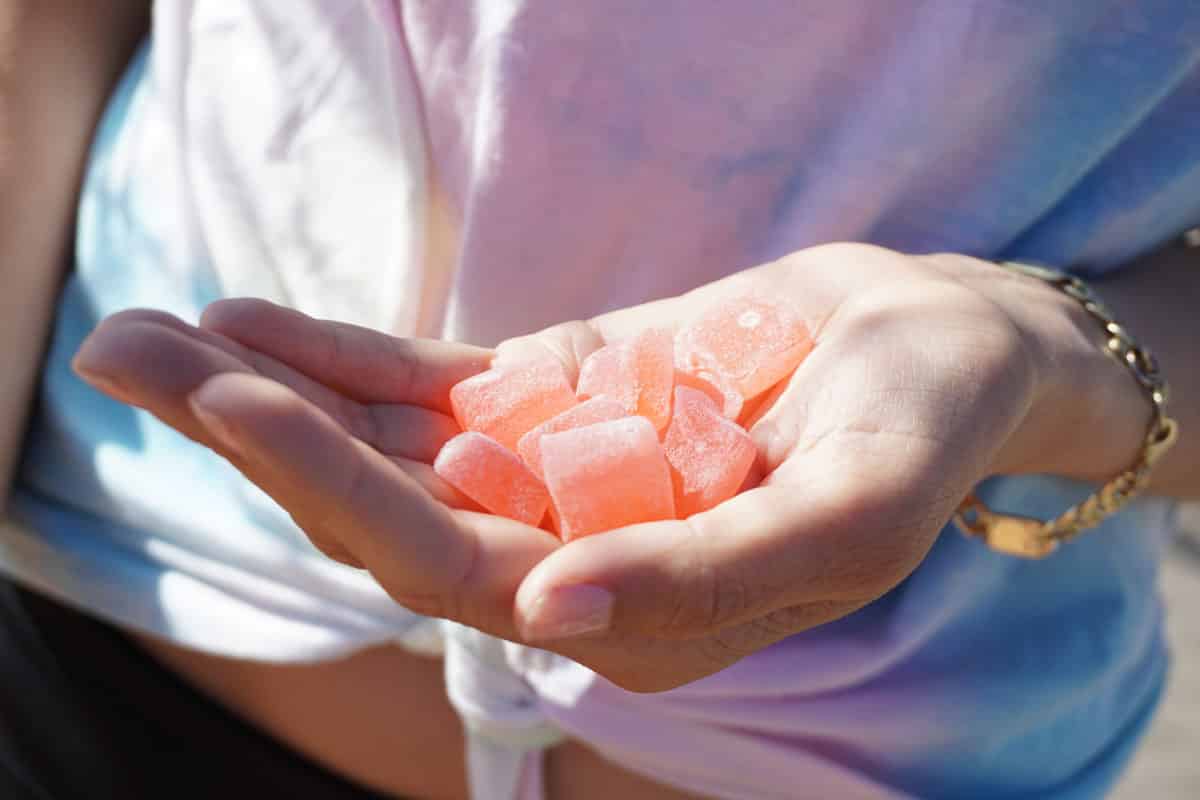Why are Cannabis Edibles So Popular?

One of the best things about cannabis is the variety of ways it can be consumed. Smoking and vaping are not necessarily everyone’s cup of tea, and the exploding cannabis edibles market shows just how interested people are in trying a creative range of products. Read on to get the latest updates on the cannabis edibles market, which is drawing individual and commercial attention.
Cannabis Tinctures vs. Edibles
Edibles are available as cannabis-infused food and drinks. Cannabis tinctures are isolated cannabis extracts, which are often used to make edibles. Edibles function by transporting cannabinoids through the digestive system and causing a similar feeling to smoking.
Differences in personal metabolisms and edible dosing, as well as tolerance levels, contribute to individuals’ varying experiences. When considering consumption of cannabis tinctures vs edibles, the most significant difference is the interval in which effects are experienced. It is key to remember that edibles are perishable and that cannabinoids can degrade over time. Storage in a fridge or freezer can extend their shelf life, especially if the item contains ingredients such as egg or dairy.
As opposed to smoking, edible cannabinoids can take anywhere from 30 minutes to several hours for users to feel their effects, said Daniel Barrus, a pharmacologist at the nonprofit research organization RTI International. Therefore, it is important to consider the delay in effect when edibles dosing and not to over-imbibe. Further, edibles can sometimes induce a more intense, intoxicating high than smoking because of how the body metabolizes THC, said James MacKillop, director of the Michael G. DeGroote Centre for Medicinal Cannabis Research at McMaster University.
However, edibles may have less addictive potential, per Dr. MacKillop, because in general, the quicker a person feels a drug’s effects, the greater the chance the user will become dependent.
Are There Healthy Cannabis Edibles?
In a retrospective moment, the Food and Drug Administration (FDA) recently published a set of documents reviewing more than half a century of investigational cannabis-based drugs and offered its perspective of what the future of drug development could entail. Over the course of this timeframe, the FDA has evaluated more than 800 investigational new drug applications (INDs) for cannabis and cannabis-derived products (CCDPs). Guidance issued by the FDA was most recently revamped in 2016, when a document on botanical drug development was published, and more recently, a separate document outlining the unique considerations around hemp and marijuana.
“The FDA continues to support robust scientific research needed to develop new drugs from cannabis,” agency authors wrote in an Exploration of Medicine article, “and is committed to supporting the development of these new drugs through the IND and drug approval processes.”
“The past 10 years have brought a proliferation of new product types proposed for use in human clinical trials as well as an increase in applications,” the journal article says. “Other oral product types began to be proposed for clinical trials in the 1990s and 2000s, but inhalation via cigarette remained the primary cannabis-edibles-market studied. However, in the 2010s the variety of product types dramatically expanded in clinical trials to include a wider array of oral product types and other ROAs. Broadly, the product types proposed for use included baked goods, botanical extracts, capsules and tablets, oils, purified (or semi-purified) extracts, sweets (e.g., candies), tinctures, and vaporized products (e.g., vapes).”
A Growing Cannabis Edibles Marketing in the Garden State
The state of New Jersey is also becoming more accepting of healthy cannabis edibles. Marijuana-infused drinks, baked goods and other familiar THC edibles are being integrated into legalization after an out-of-step ban on “edible products resembling food.” Although edibles were allowed, they were limited to “syrups, pills, tablets, capsules and chewables.”
In September 2023, the Cannabis Regulatory Commission began allowing licensed cannabis manufacturers within the state to apply for a waiver to produce edibles. “These waivers will allow for some immediate expansion of edible products in both the medicinal market, which is critical, as well as the adult-use market,” Cannabis Regulatory Commission Executive Director Jeff Brown said. Of note, edibles continue to be limited to 10 milligrams of THC per serving, with THC limit in drinks being capped at 5 milligrams.
A major contributing factor to the original New Jersey decision to limit the form of edibles dosing was the concern that cannabis sellers would use packaging to mimic popular kids’ snacks and candy. This has occurred in many forms and proved to be a difficult problem for law enforcement. Additionally, calls have increased to poison control centers about accidental ingestion. Not long ago, the FTC and FDA sent warning letters to certain sellers of edible cannabis products using packaging that imitates foods or beverages popular with children, such as Doritos chips and Jolly Rancher candy. Minimized sales of copycat products is likewise effective.
Get to Know Healthy Cannabis Edibles at CannaCon
The edibles market is a fascinating, yet more risky, market to maneuver. That’s why you should learn from the experts and network with the people who can help you enter the cannabis edibles market successfully. They’ll all be at the next CannaCon expo in Oklahoma City on April 5 and 6, 2024. Don’t miss your opportunity to connect with cannabis entrepreneurs and enthusiasts from every part of the market and build a stronger, more vibrant network. Get your tickets now.
This article was originally published on Jul. 18, 2022, and was updated on Feb. 27, 2024.

[…] looked deeper into the various ways in which cannabis is sold to the public. For example, with edibles, a child is more likely to ingest, therefore the concern is valid, but in many other forms such as […]